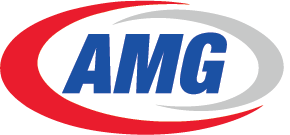Frequently Asked Questions
Form M is a required contractual document to be completed for all importers for the importation of goods to Nigeria.
The life cycle of Form M is 180 days (for general merchandise) and 365 days (for plant and machinery) during which an extension of 180 days (for general merchandise) and 365 days (for plant and machinery) can be issued on Form M by the Designated Dealer. Any further extension shall be authorised by the Central Bank of Nigeria (CBN).
The consignee / owner of the goods is responsible to process Form M.
Form M is a required contractual document to be completed for all importers for the importation of goods to Nigeria.
The life cycle of Form M is 180 days (for general merchandise) and 365 days (for plant and machinery) during which an extension of 180 days (for general merchandise) and 365 days (for plant and machinery) can be issued on Form M by the Designated Dealer. Any further extension shall be authorised by the Central Bank of Nigeria (CBN).
Shipping line and terminal charges are service charges levied by the shipping company and the terminal company for services rendered on cargo at the port of destination before arriving at the consignee.
Shipping line and terminal charges are third party charges to a freight forwarder
These are the airport agencies that handle the cargo at the airport before it is released to the consignee. NACHO/FAAN charges are third party charges to a freight forwarder
The shipper is the supplier who will send the goods from origin while the consignee is the owner of the goods; who will receive the goods at the destination.
A freight forwarder is a multi-function agent/operator involved in the storage and transportation of goods from point to point on behalf of the freight forwarder. Their service is required since they have a license and even knowledge of all the fundamentals to be practiced by transporting cargoes.
Third party charges may only be decided after the shipping company, terminal company, NACHO, Customs, FAAN, has given their receipt following delivery of their services or appraisal of the shipment. A freight forwarder may leave these charges as received, or at cost on a quotation, or offer an estimate.
In order to measure the volumetric weight to see what is greater, it is also important to know if the cargo will fit into an aircraft cargo compartment, a 20-ft container or a 40-ft container, etc., since the freight cost, whichever is higher, is considered for costing.
Any freight entering Nigeria is supervised by one entity or another, ranging from food goods, electronics, pharmaceutical, oil and gas, power generation equipment, etc. Until embarking on the shipping of their cargo, the consignee must obtain the permission of the appropriate agency/agencies.
If you have any additional questions, please contact us by going to our contact page, or call us on
- +234 911 154 6337
